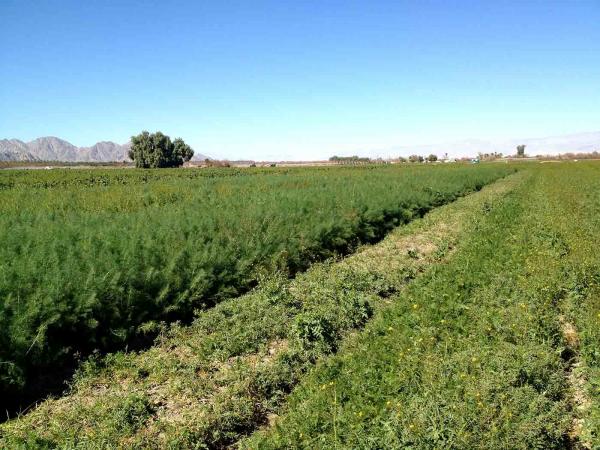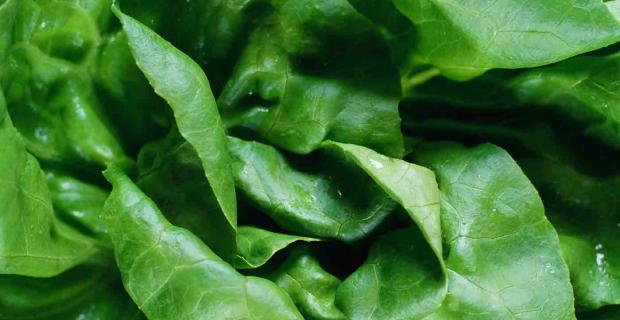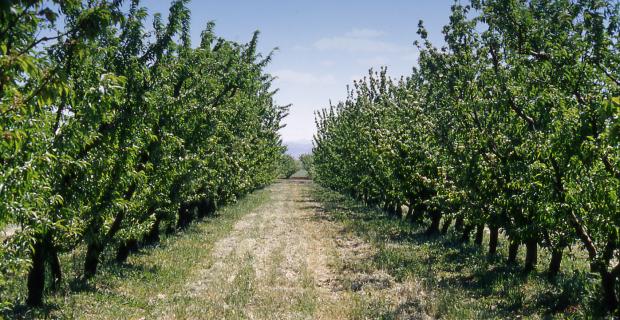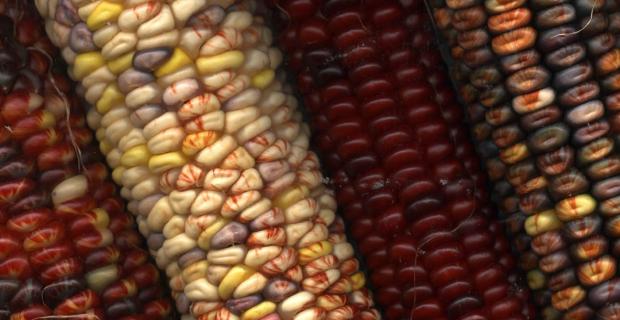Alleviating Poverty through Farming

Author and farmer Michael Ableman recently joined a delegation from the Nobel prize-winning Grameen Bank in Jamaica.
Ableman and Zenobia Barlow, executive director of the Center for Ecoliteracy, discussed the central role of food practices in alleviating poverty as part of a conference hosted by Island Outpost. This essay is an excerpt from Ableman's talk.
I was 16 years old when I first came to Jamaica to help my brother develop a small piece of land he owned outside of Negril. We were taken in by neighbors Gretel Hilton and her partner, Uncle Will, who patiently instructed us in some basic survival: how to sharpen a machete and open a coconut, what herbs to use if we were injured or sick, and how to fish from the cliffs along the sea. They must have felt responsible for us: two young white boys not particularly well adapted to Jamaican bush life.
At the time, I’m sure that I viewed their world and the knowledge they had of that place as necessary but somewhat quaint, maybe even a little backwards, a far cry from where the world was going. I had no idea that I would eventually devote my life to learning those very skills, writing and teaching about the critical importance of rediscovering our place in nature, and knowing how to grow food. My generation was invested in our own human cleverness, believing it was far greater than nature's wisdom. We didn’t realize the ecological and social price we all would pay for this arrogance.
Gretel Hilton and Uncle Will were still immersed in the natural history of a place we call Jamaica, and they were not alone. At that time, most rural families were fairly self-sufficient and still had chickens and goats, a breadfruit tree, coconut trees, mango, a little cultivated yam and greens; and if they lived near the coast or a river, they fished.
I returned to Jamaica in 2007, after 37 years, and much has changed, as it has everywhere. Most profound is that the natural self-sufficiency that was so much a part of my experience back then is now the exception rather than the norm. The potential for abundance is still here, supported by a tropical climate, rich soils, and plentiful water; but that self-reliance, especially in regard to food, has been replaced by a dependency on imports from abroad.
Taste and smell have an uncanny ability to form the basis for memory. Prior to my return to Jamaica I looked forward to the taste of a nation that had so acutely lodged in my subconscious: the intense rich flavors of real banana and pineapple, oranges so ugly but so incredibly rich in flavor, and the most sublime mangoes. And while poverty in the economic sense of the word was as endemic then as it is now, this diversity and food quality was a form of national wealth embodied by rural communities that prided themselves on the variety and quality of their fruits, and a knowledge and an intimacy with a place. So much of the fruit I find here now is not that different from the exported tropical products you find sitting on a shelf in some store in Minneapolis or Toronto or Los Angeles.
So what does having a sense of place, ecological stewardship, and local food and agriculture have to do with our very noble desire to alleviate poverty in this great island nation?
Another kind of poverty. I am not sure that we can separate economic poverty from the poverty of the land and the seas, or from the poverty of understanding the interrelationship of all living things. Microlending provides a fantastic system to encourage self-sufficiency among the poor, but is it really possible to create long-term self-sufficiency if the natural systems from which all enterprise is based are impoverished?
As energy prices continue to climb, farmland is converted from food to fuel production, and climate change continues to play out, the cost, quality, and secure access of food will become the dominant issue of our time, especially for populations already living on the edge. As an island nation wholly dependent on the importation of its basic food, Jamaica is especially vulnerable.
The global food system now faces a crisis of unprecedented levels primarily as the result of its wholesale dependency on fossil fuel. Food supplies are at their most limited levels in recent history, and the price of food continues to climb. Those who are already living in poverty and those who do not have access to land or the skills to grow food are the most at risk. Even the World Bank, which has historically refused to acknowledge agriculture in its quest to encourage industrialization among developing nations, recently stated that "farming must be central to efforts to reduce hunger and poverty."
I totally agree but I believe that we need to completely rethink what we mean when we use the word "farming" or "agriculture". We need to rethink the dominant industrial paradigm of inputs in, products out. We need to refocus on management-intensive rather than resource- and chemical-intensive systems. We need to refocus on systems that depend on human resources, and emphasize place-specific knowledge of soils, weather, water, and the interactions and relationships among animals, plants, and humans.
Another kind of agriculture. The great thing here in Jamaica is that the opportunities are as vast as the vulnerabilities. Jamaica still has vibrant rural communities, an excellent climate, good soil and abundant land, and a population that has, even under the most difficult of conditions maintained great dignity, intelligence, and creativity.
We now need to demonstrate that you can make a decent living in agriculture, and that you can do it in a way that does not destroy your health or the health of the land. We need to find creative ways to replace the painful memories of a nation whose agriculture was based on a plantation and slavery model that exploited both humans and the environment with a new model that honors farmers as craftsmen, artisans, and highly respected professionals.
The work that we have begun at Pantrepant in Trelawny in collaboration with Island Outpost is specifically geared to create a working food production mode based on low-input natural systems. Our goal is for the farm to act as a hub for the broader community, modeling scale-appropriate tools, techniques, and products; acting as an agricultural training center; and providing cooling, packing, and processing facilities. We hope to establish a cooperative marketing and distribution system that will provide local farmers with better prices and access to markets.
While we need to focus on finding ways for Jamaicans to grow food to feed Jamaica, there is a virtually untapped opportunity for small farmers to provide agricultural products to the ever-expanding tourist hotels that now rely predominantly on poor quality imported products to feed their guests. Every new hotel in Jamaica should be required to source Jamaican products. If Jamaicans are expected to lose their lives building hotels for foreign tourists, as recently happened, those hotels should have a greater responsibility to reinvest in Jamaica.
The key to all of this is education and good ongoing technical and marketing support. We can achieve this through hosting training seminars, in-the-field farm advisors, and fulltime post-harvest, packing, and marketing staff.
And, finally, if we are going to talk about food security, it is important to remember that urban poor are most heavily impacted. Roughly half of the population of Jamaica lives in Kingston, so how can we address food security here? I spent many years directing an organization I founded called the Center for Urban Agriculture. Most people would consider "urban" and "agriculture" a contradiction in terms. But there is a major movement around the world to reconsider our idea of where food comes from, how far it travels, and whether cities can produce at least some of their own nourishment. Cuba, for example, has one of the most sophisticated urban agricultural systems in the world.
I believe that we can empower individuals to improve their lives and the lives of their families and communities by providing them with the inspiration, tools, techniques, and creative financing. It is not only possible but, considering the current challenges in the world and in Jamaica, it is an imperative.
Whether we approach this in a holistic or a fragmented way will determine how successful and sustainable our efforts are. As the foundation of food, nutrition, culture, and ecology, agriculture offers us a place to begin.




